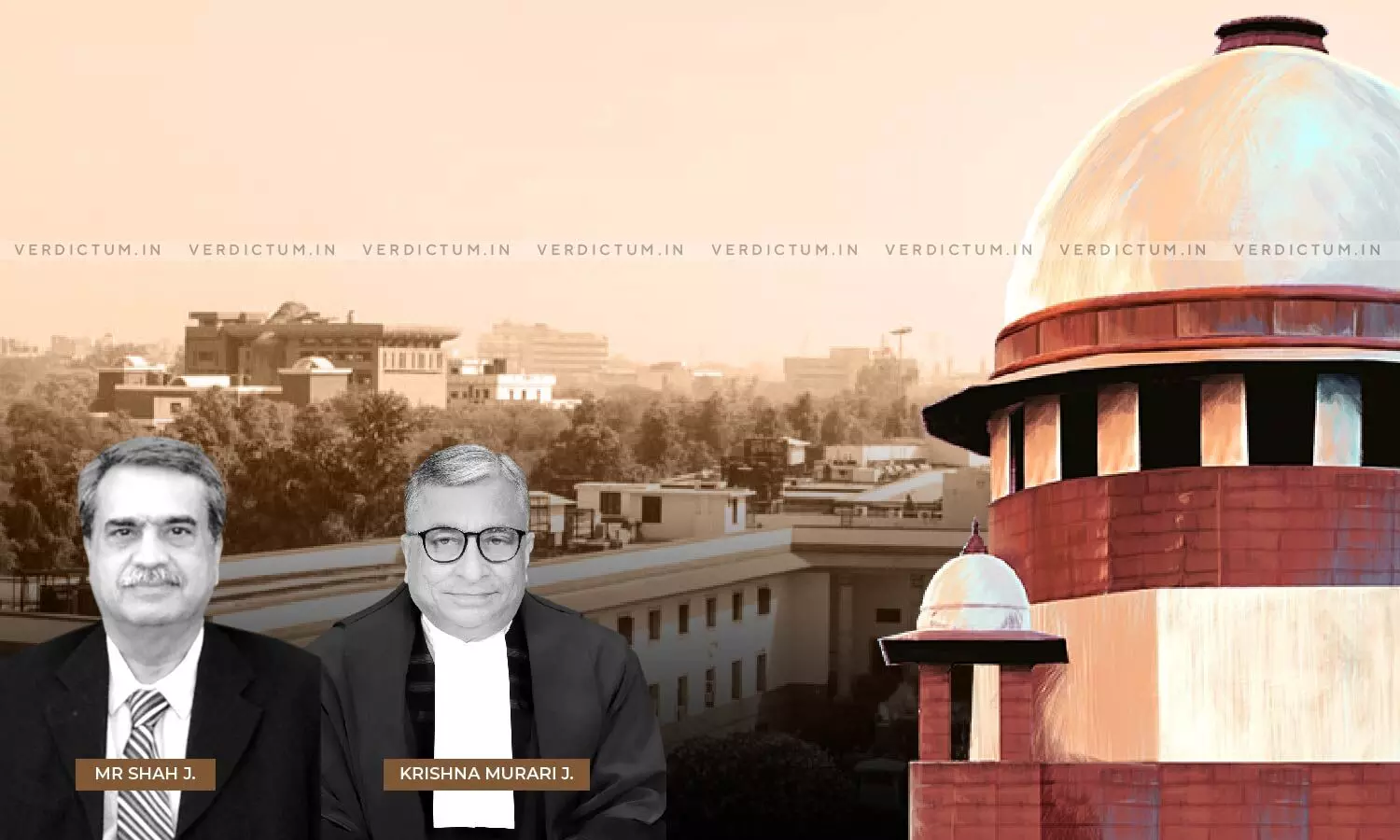
Without Any Positive Act By Accused Proximate To Time Of Occurrence, Conviction U/s. 306 IPC Is Unsustainable- SC
 |
|The Supreme Court has observed that merely on the allegation of harassment without there being any positive action proximate to the time of occurrence on the part of the accused which led or compelled the person to commit suicide, conviction under Section 306 IPC is not sustainable.
The Bench of Justice MR Shah & Justice Krishna Murari observed-
"It is also to be borne in mind that in cases of alleged abetment of suicide, there must be proof of direct or indirect acts of incitement to the commission of suicide. Merely on the allegation of harassment without their being any positive action proximate to the time of occurrence on the part of the accused which led or compelled the person to commit suicide, conviction in terms of Section 306 IPC is not sustainable."
In this case, Appellants were charged under Sections 306 and 498A IPC for abetting the suicide of the deceased. Appellant No. 1 was the husband of the deceased and the other Appellant was the mother-in-law of the deceased. Both the Appellant No. 1 and deceased were doctors. It was alleged by the Prosecution that the deceased died due to the mental torture and cruelty shown by the Appellants towards the deceased. The Madras High Court had convicted the Appellants to life imprisonment for the alleged offences.
Senior Advocate Kapil Sibal appeared for the Appellants while Counsel P.V. Yogeswaran appeared for the Respondents before the Apex Court.
The Court was apprised of the fact that the deceased suffered from bipolar disorder and has suicidal tendencies right from her student days and had also undergone a treatment for the same. It was also contended by the Appellants that the relationship between the families was cordial and the deceased was very affectionate towards the Appellant's family and there are no evidence of cruelty or harassment meted out to her by the Appellants.
The Apex Court noted that the High Court erred in recording the finding that there is sufficient evidence for convicting the Appellants under Section 306 IPC losing sight of the fact that there exists no evidence on record indicating that the deceased was meted out with harassment by the Appellants just before her death.
The Court in this context, observed, "It is well-settled that not only there has to be evidence of continuous harassment, but there should be cogent evidence to establish a positive action by the accused which should more or less be proximate to the time of occurrence, which action can said to have led or compelled the person to commit suicide."
"In case at hand, not only the said positive action in close proximity to the time of suicide is absent but also there is no evidence for any continuous physical or mental torture meted out to the deceased by the appellants. On the contrary, appellant no. 1 himself took the deceased to consult a psychiatrist just a day prior to this incident obviously with the intention to make her feel better. The said act can by no stretch of imagination be said to be any such act which may lead the deceased to commit suicide," the Bench held.
Further, the Bench also held that to convict a person under Section 306 IPC, there has to clear mens rea to commit offence, and thus observed-
"It also requires an active act or direct act which leads deceased to commit suicide finding no other option and the act must be such reflecting intention of the accused to push deceased into such a position that he commits suicide. The prosecution has to establish beyond reasonable doubt that the deceased committed suicide and Appellant No. 1 abetted the commission of suicide of the deceased. In the present case, both the elements are absent."
Thus, the Court held that the High Court was not justified in upholding the conviction of the Appellants under Sections 306 and 498A IPC.
Accordingly, the Court allowed the appeal and acquitted the Appellants.
Cause Title – Mariano Anto Bruno & Anr. v. The Inspector of Police
Click here to read/download the Judgment